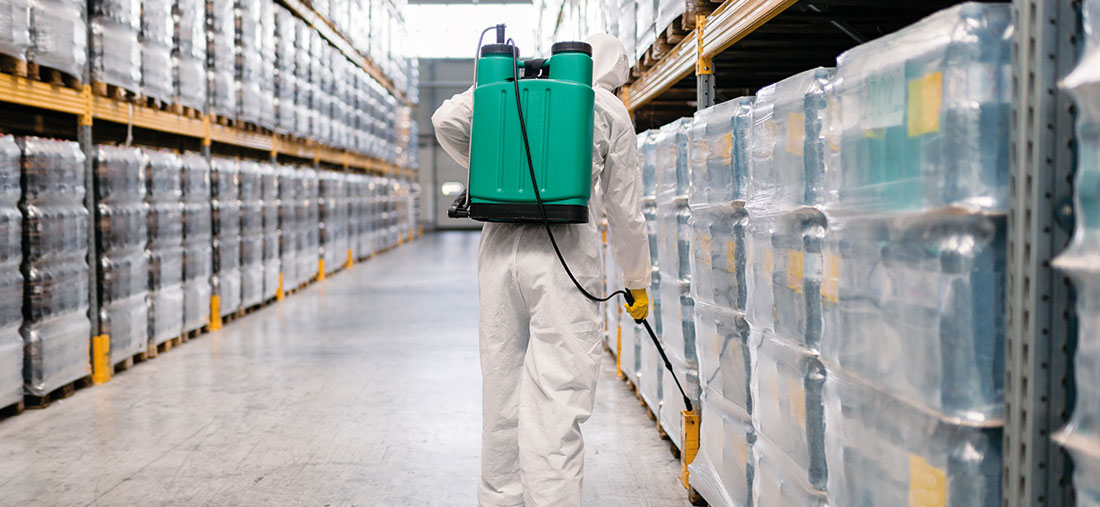We have facilities adapted for the storage of pesticides and pesticide products according to current regulations: Royal Decree 3349/1983, of November 30, approving the Technical-Sanitary Regulations for the manufacture, marketing and use of pesticides, Royal Decree 285/221, of April 20, establishing the conditions for storage, marketing, import or export, official control and authorization of testing with plant protection products, and amending Royal Decree 1311/2011, of September 14, establishing the framework for Action to achieve sustainable use of plant protection products.

Pesticides are chemical substances that serve to prevent, eliminate or control a pest, reduce biodiversity, regulate plant growth and also function as a nitrogen stabilizer. So pesticide storage is basically, the procedure for properly storing certain pesticides so that they will be available in case they are needed for preventive pest eradication. Many different forms of pesticides are used in various industries. All are needed for various purposes, but each has its own storage requirements. Proper pesticide storage protects both human and animal health, protects wells and surface waters, and prevents unauthorized access to hazardous chemicals.
Advantages of Storing Pesticides and Pesticide Products with us

Pests
Pest prevention and control ensure product quality.

Specialization
Specialization guarantees quality and efficiency in business services.

Accuracy
Precision and accuracy improve quality and business efficiency.

Experience
Experience guarantees knowledge and skills in the business team.
For the correct storage of pesticides, the following aspects must be observed
The proper storage of pesticides is not a simple task and requires a proper understanding of different aspects requires a proper understanding of different aspects such as installation, maintenance and use.. Care should always be taken when handling pesticides and protective clothing should be worn if possible so as not to come into contact with any harmful aerosols when storing them.
- Pesticides should be stored in their original containers.
- It is very important to respect and keep the original labeling and cap.
- Extreme temperatures can change the chemistry of some pesticides inside the container.
- Extreme temperatures can also damage the containers.
- Always read the label for storage instructions. As a general rule, pesticides are best stored between 40-90ºF.
- Choose a dedicated ventilated location for pesticides.
- Correct disposal of unwanted pesticides is important
Types of Pesticides and Pesticides

Rodenticides

Antimicrobials

Insecticides

Disinfectants

Fungicides

Wood preservatives

Herbicides

Algaecides

Insect growth regulators
Pesticides and Pesticide Storage Tips
- Pets and children should not have access to pesticides.
- Store insecticides away from sources of heat and flame, in a cool, dry and well-ventilated place.
- Ensure that pesticide cans are properly labeled and stored in a safe place.
- Food and insecticides should not be stored together.
- To avoid potentially harmful chemical reactions, do not store several types of pesticides together.
- Never reuse empty pesticide containers without first cleaning them thoroughly.
- Observe local laws and the storage instructions on the product label.
Regulations for the storage of Pesticides and Pesticides
In Spain, the regulations for the storage of pesticides and pesticides are governed by the
Royal Decree 1311/2012, of September 14, 2012, which establishes the framework for action to achieve a sustainable use of plant protection products.
which establishes the framework for action to achieve a sustainable use of phytosanitary products.
Some of the main regulations that must be complied with in Spain for the storage of pesticides and pesticides are as follows:
- Identification and classification of phytosanitary products according to their hazardousness and toxicity.
- Storage in specific premises, separated from other incompatible products and provided with adequate ventilation systems.
- Use of approved containers and packaging suitable for the product stored, with the corresponding labeling.
- Have fire protection systems, such as fire extinguishers or fire detection systems.
- Personnel handling phytosanitary products must be trained and qualified for their correct handling and storage.
- Carry out periodic inspections of installations and equipment, and perform adequate maintenance.
- The storage of phytosanitary products should be in accordance with the storage conditions indicated in the product data sheets, and storage for prolonged periods of time should be avoided.


